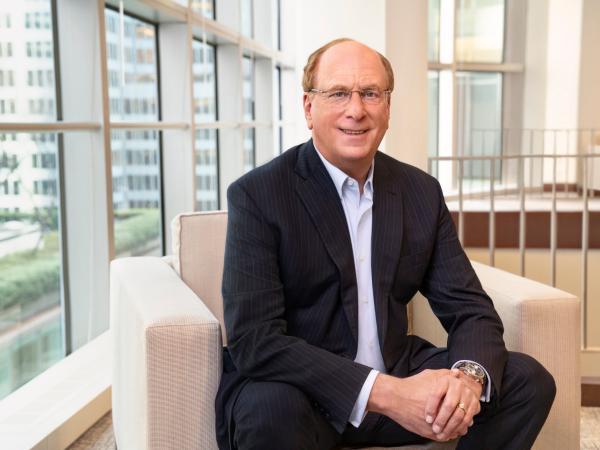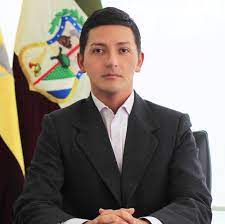Larry Fink, Chairman and CEO of BlackRock, manager of investment funds that manages close to US$10 billion, considers that companies must continue to transform themselves in order to seek a decarbonization and also move forward to strengthen its environmental, social and corporate governance sustainability policies.
(See: 30% of Colombia’s territory would be a protected area in 2022).
In his annual message to shareholders and clients around the world, Fink says that the covid-19 pandemic has posed a serious challenge to the world and will continue to do so, but he assures that in the last four decades, there has been a explosion in the availability of capital with an availability of US$400 billion, which brings opportunities and risks for investors and companies alike, and means that banks are no longer the sole gatekeepers of funding.
“Young, innovative companies have never had easier access to capital. There has never been more money available to make new ideas come true” which drives a dynamic landscape of innovation, indicates the executive.
He points out that every sector has a large number of disruptive startups trying to take down the market leaders.
(What’s more: Colombia, one of the most vulnerable countries in the bond market).
He said that BlackRock wants to see the companies it invests in for its clients evolve and grow so that they generate attractive returns for decades to come and that the assets are investedconsistent with its objectives.
I believe that the decarbonisation of the economy is going to create the greatest investment opportunity of our lifetime
CLIMATE AND INVESTMENTS
Fink claims that the climate risk is investment risk and in two years there has been a tectonic shift in capital as sustainable investments have reached US$4 trillion.
In this sense, he warned, each company and each industry will be transformed by the transition to a world with net zero emissions and gave as an example the innovative efforts in the automotive industry, to the point that all car manufacturers are heading towards an electric future and other sectors will be transformed by new sustainable technologies such as cement, steel and plastics; sea and land transport, aviation; agriculture, energy and construction.
(See: The Colombian Stock Exchange confirmed acceptances of Acerías Paz del Río’s takeover bid).
“I believe that the decarbonization of the global economy is going to create the greatest investment opportunity of our lifetime. It will also leave behind companies that don’t adapt, regardless of their industry. And just as some companies risk being left behind, so do cities and countries that fail to plan for the future. They risk losing jobs, even as other places gain them”, he says in his message.
The head of BlackRock, an investment fund manager, points out the paths that companies and governments must follow in these fields.
private file
Note that with decarbonisation of the economy there will be huge job creation for those involved in long-term planning.
Fink predicts that the next 1,000 unicorns will not be search engines or social networks, “they will be sustainable and scalable innovators, startups that help decarbonize the world and make the energy transition affordable for all consumers.”
BlackRock’s CEO and chairman acknowledged that green products are often more expensive but lowering that green premium will be essential to an orderly and just transition.
CAPITALISM IS THE BASE
Fink emphasizes that it is through the true stakeholder capitalism (Interest groups) “that capital is allocated efficiently, companies achieve lasting profitability and value is created and maintained in the long term”.
The manager reminds shareholders and clients that they should not be mistaken because “the fair search for returns continues to be what motivates the markets, and long-term profitability is the measure by which the markets will ultimately determine the success of your company”.
(Keep reading: Ómicron and inflation cool optimism in the economy).
Considers that the pandemic has prompted a evolution in the operating environment from virtually all companies.
“It is changing the way people work and the way consumers shop. You are creating new businesses and destroying others. In particular, it is radically accelerating the way technology is reshaping life and business.”
And it is that for Fink, covid-19 deepened the erosion of trust in traditional institutions and exacerbated polarization in many Western societies. “This polarization presents multiple new challenges for CEOs. In this environment, the facts themselves are often in dispute, but companies have an opportunity to lead.”
He says that society “doesn’t want to hear us, as CEOs, weigh in on all the issues of the day, but they do need to know where we stand on the social issues that are intrinsic to the long-term success of our companies.”
They need to know where we stand on the social issues that are intrinsic to long-term success.
GOVERNMENTS AND COMPANIES, IN CLOSE COLLABORATION
Fink believes that governments and companies must ensure that people continue to have access to reliable and affordable energy sources and recognized that divestment in carbon-intensive sectors “will not get the world to net zero emissions”.
(What’s more: La Nación delivered the first 13 mining titles of the year).
He points out that delivering returns to shareholders is good, but companies they must be transparent and to this they must add environmental practices and policies, social and corporate governance solid. He announced the launch of a Center for Stakeholder Capitalism, a forum for research, dialogue and debate to explore in depth the relationships between companies and their stakeholders (interest groups) and shareholders.
BRIEFCASE


















